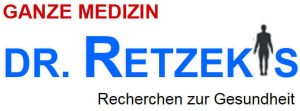Aging – Anti-Aging – Best-Aging –> Preventiv Aging –> Präventive Medizin!
Auf dieser Seite werde ich Fakten und Tatsachen zum Altern sammeln bzw. von hier ausgehend verlinken. (Retzek, Aug 2010)
Juni 2010: US-Health-Report, die wichtigsten 4 Punkte um “gesund zu altern”:
- 1. Vermeidung oder Bekämpfung FREIER RADIKALE
- 2. Entzündungen reduzieren
- 3. Glykierung reduzieren (Verzuckerung)
- 4. Stress reduzieren
ich werde wenn etwas mehr Zeit bleibt, die einzelnen Punkte genau exemplifizieren, inzwischen verweise ich auf die Quell-Seite sowie auf das Interview mit dem Gerontologen Aubrey de Grey
Kommentar RETZEK:
seit 2 Jahren besuche ich alle wesentlichen deutschsprachigen Anti-Aging-Konferenzen/Kongresse/Symposien/Ausbildungen und verfolge die aktuelle Literatur. Müsste man den Trend der Wissenschaft zum “GESUNDEN ALTERN” in einem Satz abbilden, kann man die INSULIN-RESISTENZ als den zentralen, universelln Hauptmotor jedwedigen Altersvorgänge bezeichnen.
Gleichlautende Aussagen von Prof. Johannes Huber, Priv. Doz. Alex Römmler, Prof. Heufellner usw: “wir können alle Erkrankungs- und Alterungsvorgänge durch eine Verringerung des Insulin-Spiegels positiv beeinflussen” (München, Mai 2010).
In diesem Zusammenhang ist eine LOGI – basierte Ernährung als einfachste, billigste und wirkungsmächtigste Möglichkeit zu identifizieren, hier zu intervenieren.
Aging is characterized by a progressive deterioration of physiological functions and metabolic processes. Healthy aging remains one of the ideals of modern society. In aging and in diseases associated with the elderly, such as Alzheimer’s or Parkinson’s, the loss of cells in vital structures or organs may be related to several factors, among which the production of reactive oxygen species (ROS) by mitochondria is a common denominator, one that leads to DNA damage, apoptosis and death. Although a diet rich in antioxidants seems to offer hope in delaying the onset of unhealthy disorders that accompany aging, no clinical treatment as such has yet been developed and anti-aging drugs are still unavailable. It is well established that reducing food intake (caloric restriction) extends the life-span in a wide range of species. The protein implicated in this protective process is the silent information regulator 2 (SIR2, SIRT1 in mammals), an enzyme that belongs to a nicotinamide adenine dinucleotide (NAD)+-dependent protein deacetylases. SIRs regulate gene silencing, DNA repair, rDNA recombination, and ageing, apart from regulating programmed cell death. In this context, increasing SIRT1 has been found to protect cells against amyloid-beta-induced ROS production and DNA damage, thereby reducing apoptotic death in vitro. Moreover, it has been demonstrated that Alzheimer’s and Huntington’s disease neurons are rescued by the over-expression of SIRT1, induced by either caloric restriction or administration of resveratrol, a potential activator of this enzyme. The therapeutic use of resveratrol (a polyphenol present in red wines) and other related compounds, which utilize SIRT1 pathway modulators, in treating aging-related brain disorders will be discussed in this review. Provided herein are novel new compound related with resveratrol or sirtinol that are able to modulate sirtuin activity that will be tested to treat and/or prevent a wide variety of diseases including, disorders related to aging or neurodegenerative diseases.
PMID: 18221243 [PubMed – indexed for MEDLINE]

